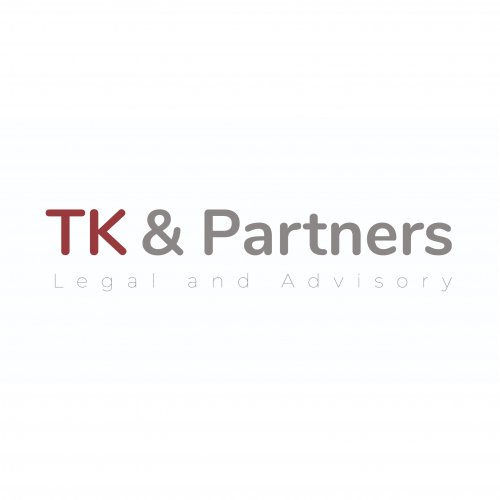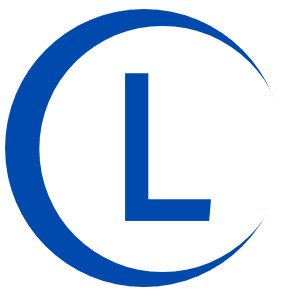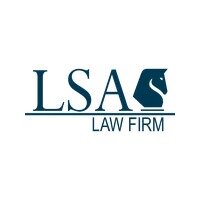Best Fintech Lawyers in Armenia
Share your needs with us, get contacted by law firms.
Free. Takes 2 min.
Or refine your search by selecting a city:
List of the best lawyers in Armenia
About Fintech Law in Armenia
Fintech, short for financial technology, is a rapidly growing sector in Armenia, integrating technology with financial services to enhance or automate banking and financial services. Armenia, known for its vibrant tech sector, is beginning to embrace fintech with a supportive ecosystem comprising startups, regulatory frameworks, and government initiatives aimed at driving innovation. The Armenian government has shown active interest in developing a conducive environment for fintech advancement, streamlining regulations while ensuring consumer protection and systemic stability.
Why You May Need a Lawyer
Navigating the fintech landscape can be complex due to the intersection of finance and technology. You may need legal assistance in several situations such as:
- Setting up a fintech startup: Understanding the legal requirements for founding, structuring, and registering your business.
- Compliance issues: Ensuring your operations adhere to local and international financial regulations, including AML (Anti-Money Laundering) and data protection laws.
- Intellectual property protection: Safeguarding your technological innovations, i.e., software, algorithms, and trademarks.
- Contractual agreements: Drafting and reviewing contracts with partners, clients, and suppliers to minimise legal risks.
- Dispute resolution: Addressing conflicts that may arise from contracts, regulatory non-compliance, or consumer claims.
Local Laws Overview
Armenia's regulatory framework for fintech encompasses several important aspects. The Central Bank of Armenia (CBA) plays a pivotal role in regulating financial services, including those offered by fintech companies. Key areas of relevance include:
- Licensing: Fintech firms must often obtain specific licenses depending on the nature of their services (e.g., payment service provision, electronic money issuance).
- Anti-Money Laundering (AML): Compliance with stringent AML regulations is mandatory, requiring robust customer verification and transaction monitoring processes.
- Data Protection: Adherence to data protection norms, akin to GDPR, to ensure the privacy and security of customer information.
- Consumer Protection: Regulations ensuring the rights and interests of consumers are upheld, especially in lending and payment services.
- Blockchain and Cryptocurrencies: While still evolving, the legal stance on cryptocurrencies and blockchain technologies is gradually taking shape, with ongoing discussions on regulatory frameworks.
Frequently Asked Questions
What is the role of the Central Bank of Armenia in fintech regulation?
The Central Bank of Armenia oversees the regulation of financial services, issuing licenses, monitoring compliance with financial laws, and ensuring financial stability.
Do fintech companies in Armenia need special licenses?
Yes, depending on the services offered, fintech companies may require specific licenses such as payment institution licenses or electronic money licenses.
How does Armenia ensure consumer protection in fintech?
Armenia implements regulations to safeguard consumer rights, focusing on transparent information, fair treatment, and safe financial products and services.
Are there any tax incentives for fintech companies in Armenia?
While specific incentives for fintech are limited, new technology companies may benefit from certain tax exemptions and incentives aimed at IT and innovation sectors.
Is blockchain technology legally accepted in Armenia?
Blockchain technology is recognized, with growing interest in how it can be integrated into financial services, though specific regulations are still under development.
How are disputes in the fintech sector usually resolved?
Disputes can be resolved through negotiation, mediation, arbitration, or litigation, often guided by the terms of contractual agreements.
What kind of legal structures can fintech startups adopt in Armenia?
Common legal structures include limited liability companies (LLCs) and joint-stock companies (JSCs) to facilitate business operations.
Can foreign fintech companies operate in Armenia?
Yes, foreign companies can operate, subject to compliance with local regulations and obtaining necessary licenses.
How is customer data protected in the fintech sector in Armenia?
Fintech companies must comply with data protection regulations, ensuring the confidentiality, integrity, and security of personal data.
What legal challenges do fintech startups face in Armenia?
Challenges include regulatory compliance, data privacy management, obtaining necessary licenses, and navigating the still-developing blockchain and cryptocurrency regulations.
Additional Resources
For further information and assistance, consider reaching out to the following:
- Central Bank of Armenia - for regulatory guidance and licensing information.
- Armenian Fintech Association - a platform for networking and support within the fintech ecosystem.
- Enterprise Incubator Foundation - offers support for startups, including legal and regulatory advice.
- Armenian Ministry of Finance - for insights into financial laws and taxation.
- Chambers of Commerce and Industry - can provide additional resources for business operations and legal matters.
Next Steps
If you require legal assistance in the fintech sector, consider the following steps:
- Identify your specific legal needs, such as licensing, compliance, or dispute resolution.
- Research and reach out to legal professionals or firms specializing in fintech law in Armenia.
- Engage with local fintech associations or networks to gain insights and recommendations.
- Prepare all necessary documentation and clarity on your business model to facilitate efficient legal consultations.
- Stay informed about updates in fintech regulations by subscribing to relevant newsletters or participating in industry forums.
Taking these steps will help ensure you have the necessary legal foundation to succeed in Armenia's burgeoning fintech landscape.
Lawzana helps you find the best lawyers and law firms in Armenia through a curated and pre-screened list of qualified legal professionals. Our platform offers rankings and detailed profiles of attorneys and law firms, allowing you to compare based on practice areas, including Fintech, experience, and client feedback.
Each profile includes a description of the firm's areas of practice, client reviews, team members and partners, year of establishment, spoken languages, office locations, contact information, social media presence, and any published articles or resources. Most firms on our platform speak English and are experienced in both local and international legal matters.
Get a quote from top-rated law firms in Armenia — quickly, securely, and without unnecessary hassle.
Disclaimer:
The information provided on this page is for general informational purposes only and does not constitute legal advice. While we strive to ensure the accuracy and relevance of the content, legal information may change over time, and interpretations of the law can vary. You should always consult with a qualified legal professional for advice specific to your situation.
We disclaim all liability for actions taken or not taken based on the content of this page. If you believe any information is incorrect or outdated, please contact us, and we will review and update it where appropriate.
Browse fintech law firms by city in Armenia
Refine your search by selecting a city.












